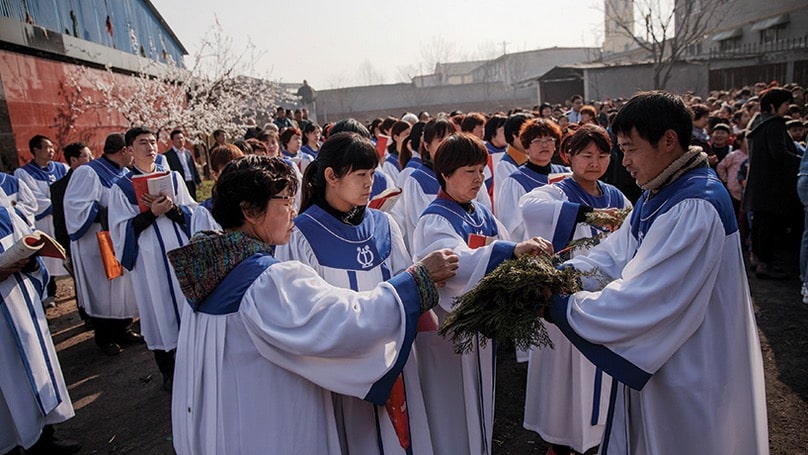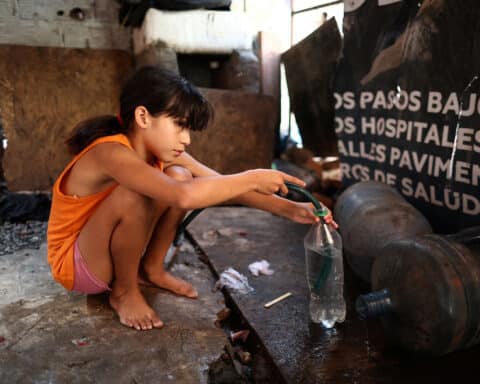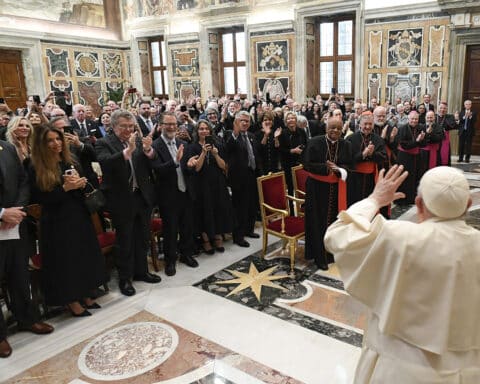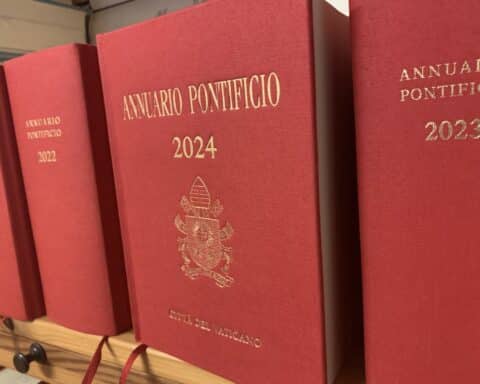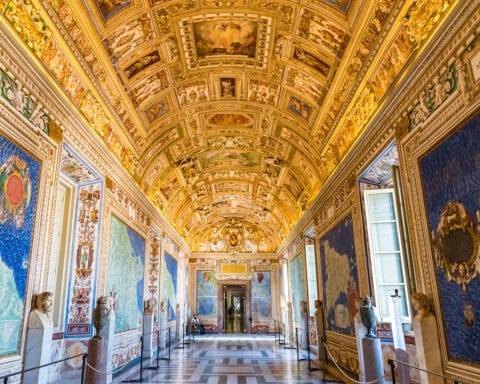In a controversial diplomatic accord with likely ramifications for Catholics in China’s underground Church, the Holy See and the Chinese Communist government have agreed to work together on appointing bishops. The provisional agreement, which the Vatican signed on Sept. 22, gives Church leaders a long-desired say in the appointment of bishops in China, but it still leaves the Chinese government a decisive role. Pope Francis also lifted the excommunications or irregular status of seven bishops who had been ordained without Vatican approval, the Vatican announced the same day.
“Does this open the door for other governments to demand a greater say in appointing bishops? In that case, it would be a great blow, and we’d be back to where we were in the Napoleonic era,” said Father Paul Mariani, a Jesuit and history professor at Santa Clara University in California.
Breaking the impasse
Father Mariani, the author of “Church Militant: Bishop Kung and Catholic Resistance in Communist Shanghai,” told Our Sunday Visitor that the Vatican appears to hope that the accord could be the first of many steps to re-establishing diplomatic ties with China, which were severed in 1951.
“That’s probably the most optimistic scenario,” said Father Mariani, who also described the agreement as a public recognition of secret back-channel negotiations on bishop appointments that have been going on for decades.
“A positive thing I could say is that it does break an impasse,” Father Mariani said.
The text of the accord has not been released, but media reports and statements from Vatican and Communist government officials portrayed the deal as something that both sides could support. The Holy See said the accord, which was signed after years of negotiations, was “not political but pastoral,” and that the Church hopes it will lead to “the full communion of all Chinese Catholics.”
“The Party is getting something out of this deal, maybe a lot, but the Vatican clearly thinks it is doing the right thing, a good thing for Catholics in China,” said Nathan Faries, a professor of Asian studies at Bates College in Maine.
Faries, the author of “The Inscrutably Chinese Church,” told OSV that he is not an apologist for the Chinese government and does not deny “the horrible things” that are happening to faith communities there, but he argued that the faith picture in China is more nuanced than is often presented in Western media, with openings for dialogue between the government and international religious bodies.
The Chinese Catholic Patriotic Association — the government-recognized Church — and the Bishops’ Conference of the Catholic Church in China said in a statement released to state media that they “wholeheartedly supported” the deal.
The Chinese Catholic Patriotic Association also said it would “persevere to walk a path suited to a socialist society, under the leadership of the Chinese Communist Party,” and that it “deeply loved the motherland” and “sincerely endorsed” the agreement, according to Reuters.
Underground resistance
But critics, including Cardinal Joseph Zen of Hong Kong, attacked the agreement as a sellout to the government. In an interview with Reuters, Cardinal Zen, a longtime critic of the Chinese government, said the accord was an “incredible betrayal,” and he accused the Holy See of “giving the flock into the mouths of the wolves.”
Perhaps most controversial is the agreement’s reported provision that the Vatican will recognize seven Chinese Catholic bishops who were previously installed by the government against the Holy See’s wishes.
“Perhaps that’s a tricky proposition,” Father Mariani said. “Because if the Vatican in the past had seen no merit for them being made bishop, why are they signing off on them now?”
“The Chinese government is getting more out of this deal than the Vatican,” said Brynne Lawrence, the English-language editor of China Aid, a Texas-based international non-profit Christian human-rights organization that advocates for religious freedom in China.
In an interview with OSV, Lawrence argued that the accord strengthens the Chinese government’s hand against the faithful who worship in the unofficial “underground” Catholic Church in China.
“They spent many decades risking their own freedom and their own lives in order to stay loyal to the Vatican and the teachings of the Catholic Church rather than submit to government censorship,” Lawrence said.
“Now that the pope and the Chinese government have reached some kind of agreement, it puts them at a lot more risk because they really are kind of cornered,” Lawrence added. “The government can now say that they have the true Catholicism, and they can use the Vatican support as an excuse to persecute the underground.”
There are around 10 to 12 million Catholics in China, with various estimates indicating that almost half of them are in the underground Church, which for decades has worshipped in private homes and caves rather than be affiliated with the government-sponsored Catholic Church.
‘Hope for a way forward’
The underground Catholic Church, as well as many unofficial Protestant churches across China, in recent years have been targeted in government crackdowns. Chinese authorities have raided those faith communities, in several instances tearing down or vandalizing their houses of worship. The crackdowns continued into late September, even as the deal between Beijing and the Rome was set to be announced.
“It’s very clear the Chinese government wants control of the churches,” said Father Mariani, who added that the government could see the agreement with the Vatican as an opportunity to consolidate control of the Church in China and make the underground Church disappear.
However, Faries said he doesn’t agree with the narrative that the Chinese government is “getting something for nothing,” or that Pope Francis is naive or thinking about his legacy and a future papal visit to China.
“That story is just too simplistic and paints the Party and the Holy Father as entirely cynical rather than an organization and a leader who are often motivated by the desire to do what is best for the enormous numbers of people in their care, and whom they have to please to some extent if they want to keep their jobs and have a legacy,” Faries said.
Father Mariani suggested that Church leaders could also be taking a long-term look at China’s demographic trends, where Protestantism has grown in some quarters and where young people have been moving to the cities and oftentimes losing touch with their religious faith.
He noted that the Catholic Church in France saw a revival in the early 1800s, after signing an accord with Napoleon that gave to the French government the authority to nominate bishops.
“Whether this is going to lead to a revival in China or whether this is just going to be one more injury suffered on the body of Christ, I just don’t know,” Father Mariani said. “So I’m of mixed opinion. I hope for a way forward.”
Brian Fraga is an Our Sunday Visitor contributing editor.

